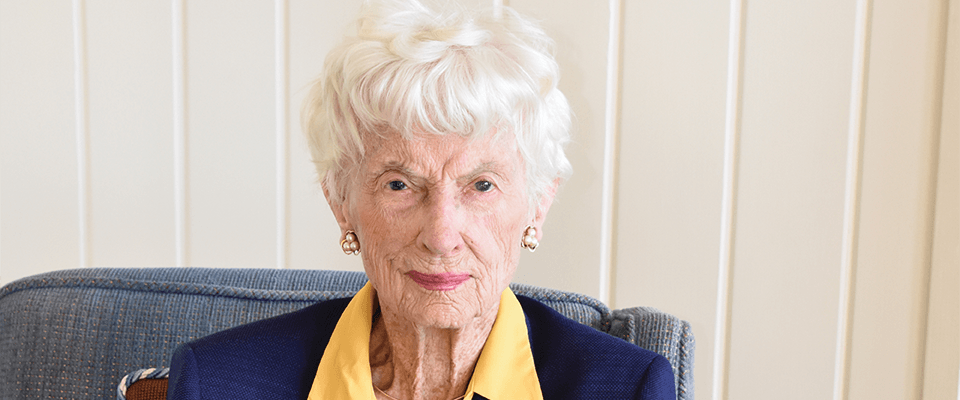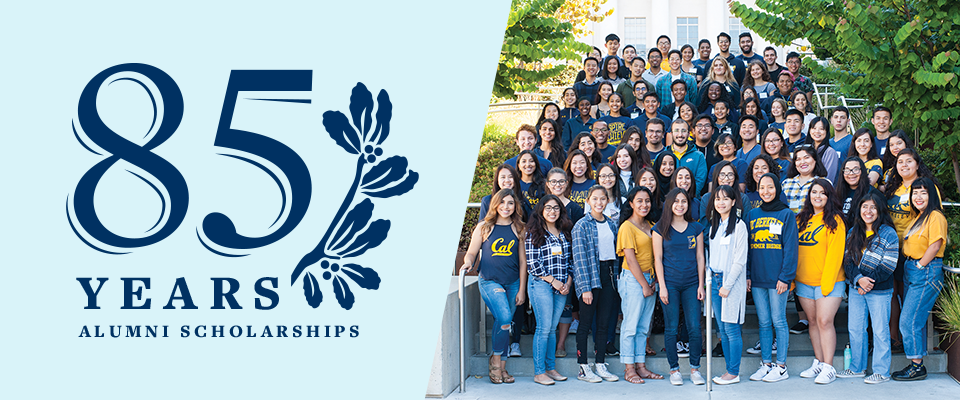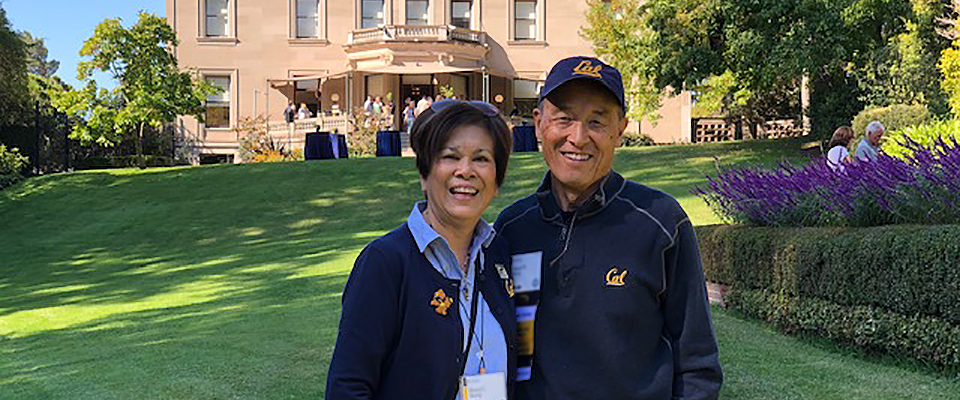War loomed, the Great Depression giving no relief to a worldwide economy mired in a financial malaise. Many Cal students were forced to leave the university, their education no longer affordable. But Fredrika May (née Doelker) ’41, known to friends and family as Fredi, dreamed of a law degree. “Lots of kids dropped out in the Depression,” she recalls. “Families lost jobs and couldn’t pay for college. Dads in small towns established scholarships to help, but many kids were poor, and there was a lot of anxiety to complete school and find a job.”

Born in 1918, May was an eyewitness to much of 20th-century history. She watched Amelia Earhart take off on her final flight from Oakland, spotted Winston Churchill in the lobby of the St. Francis Hotel, saw Adolf Hitler protected by a phalanx of SS guards in a German airport in 1935, and watched the famous racehorse Seabiscuit run. She traveled all over the world, once sharing deckchairs on a ship with Gertrude Stein and Alice B. Toklas. “My favorite travels were with my dad. Europe, Hawaii, Cuba, Germany—seeing where all those young men died during the war.” Her father worked for a steamship company, so ships were the favorite mode of travel. “I’ve traveled my whole life,” she says. “Even to Antarctica. Now if I take a ride on a Sunday it’s a big thing.”
Today she gazes out over San Francisco Bay from her home in the East Bay hills—well aware of the changes the years have brought. More than eight decades have passed since she walked the Golden Gate Bridge on its opening day in 1937. She has walked it many anniversaries since, and was one of the first to cross the San Francisco–Oakland Bay Bridge. She has met three United States Presidents, and was present when John F. Kennedy spoke at Berkeley on Charter Day in 1962. An admirer of Eleanor Roosevelt, May says, “She had a bunch of sass. They called her a bitch, but she could take a lot of criticism.”
May always assumed, as did her parents, that a college education was in her future. “My father expected it of me,” she says. She entered Cal in 1937, a time when women were often perceived as pursuing a ‘Mrs.’ degree rather than a degree in higher education. “The guys would laugh at women. ‘How did she get in?’ they would ask when you walked by.”

May didn’t live on campus. She lived at home and commuted to Berkeley, returning to the family house in Oakland’s Claremont Pines neighborhood each day to help care for her chronically ill mother. Despite this, she seems to have had a rich college experience. A political science major and member of the Alpha Phi sorority, she urges students to belong to a campus organization. “Kids get heartbroken when they are lonely,” she says. “You should join something when you are at Cal so you can get help when you need it.” Alpha Phi gave her a community. “It’s a good place to live,” she says. “It gave me an entré, a good social support system.” Alpha Phi assigned duties, like washing dishes, to members. “It got you into ownership of where you were living. We valued the experience. We weren’t snobs.”
She also worked for the Daily Cal, doing research and interviews. “It was great fun,” she recalls. “Half of my female friends also worked there. It was good, though some of the men were a bit too friendly.” She recalls that the professors were available and always polite.
“They used to laugh at me until I hit a hole-in-one. Then they stopped laughing,” she says.
Sports played a huge role in May’s life. At Cal she took on a different sport each year. She first learned golf at the Claremont Country Club and later played at the university. “They used to laugh at me until I hit a hole-in-one. Then they stopped laughing,” she says. May continued to play golf into her 90s. As an undergraduate she also played tennis, badminton, and tried fencing, at which she claims she failed. Her favorite sport was swimming. “You can use it anywhere and it cleans you up.”
May graduated with her class in 1941 and enrolled at UC Hastings College of the Law just before the US entered World War II. “There was a Japanese student in my class at Hastings,” she sadly recalls. “During the war, she was sent to a camp in Central California. Lots of Japanese students disappeared during the war. It was a cruel thing to do to people. I thought it was wrong that they were put in a camp.”

After leaving Hastings, May met her husband in 1944. She worked at a bank in Oakland while he studied law at the University of San Francisco. They have six children, two of whom graduated from UC Berkeley. (Another graduated from UC Davis, one from UC Santa Barbara, one from Humboldt State University, and one from San Francisco State University.) While raising a family, she continued her commitment to Cal as a docent, touring dignitaries and visiting professors around campus. She still follows Cal, keeps in touch with fellow alumni, and urges students to get involved in activities. “Berkeley was wonderful,” she says. “People seem to be doing well, but I think the world is changing too fast to tell what is going to happen at Cal.”
By Mary Borrelli





















